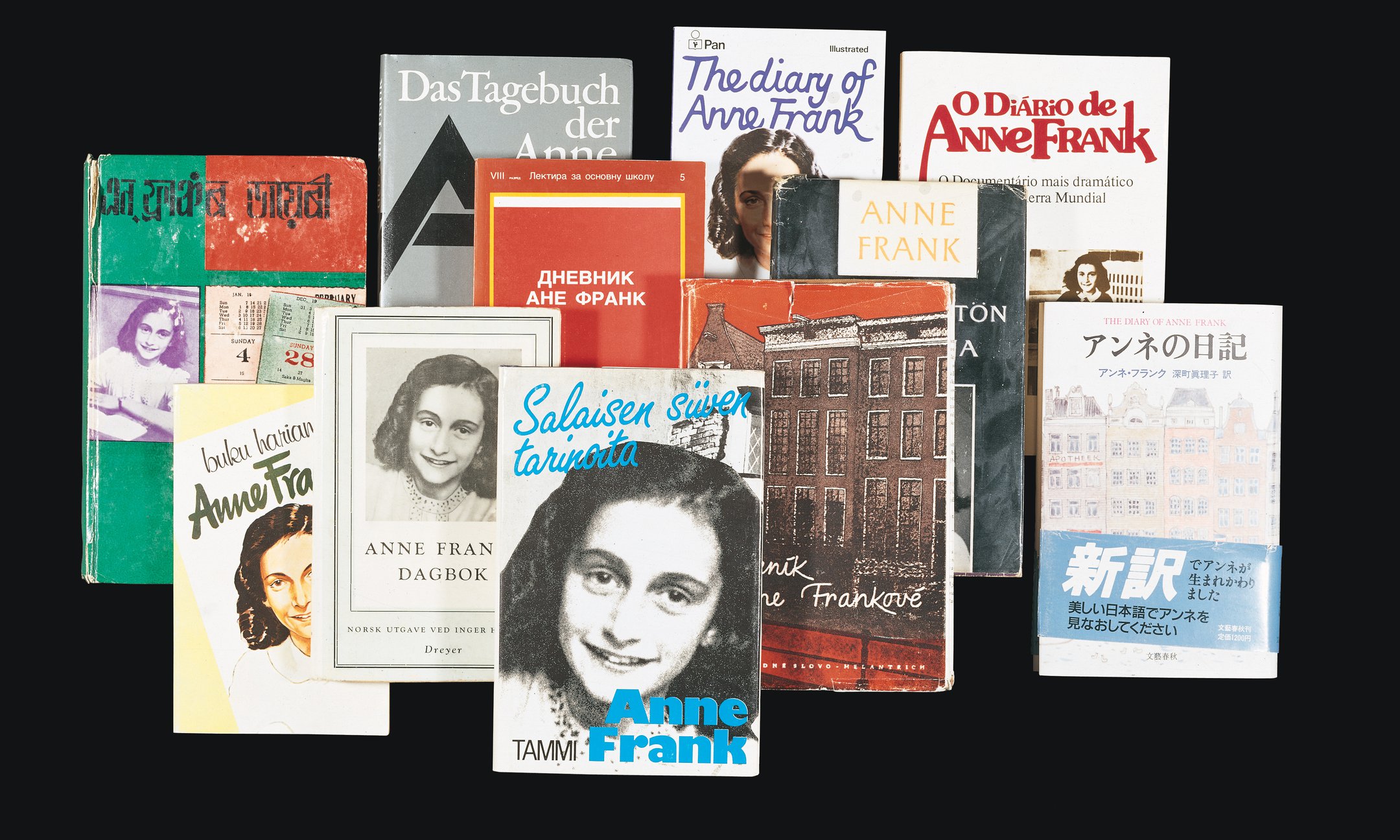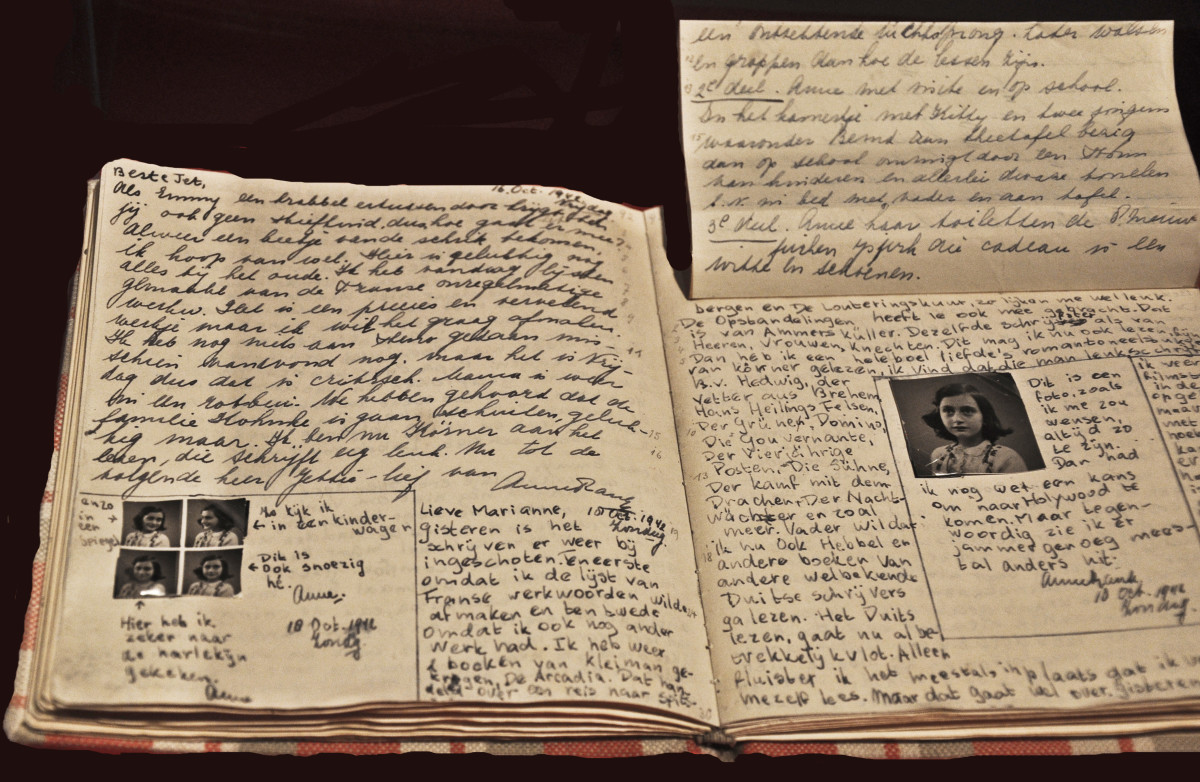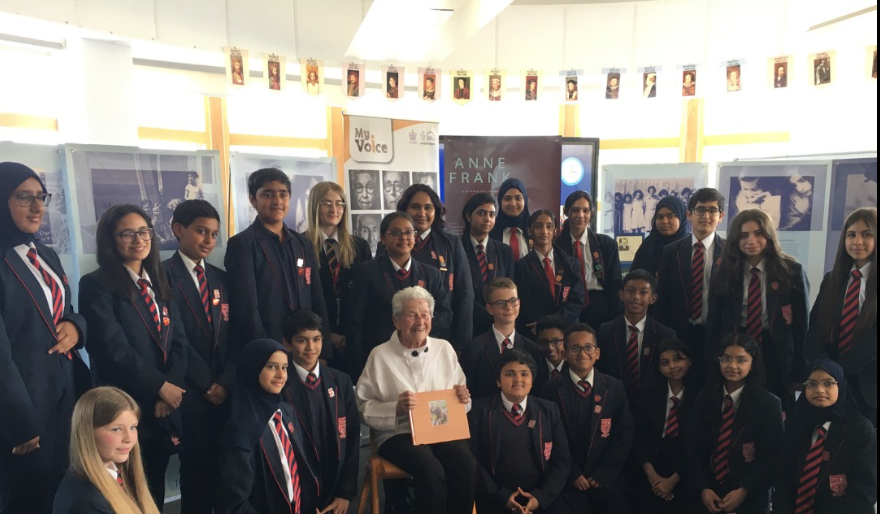65 percent of young Muslims ‘have better attitude towards Jews’ after Holocaust education
Researchers at University of Kent spoke to 3,000 school pupils before they started the programme, after completing it, and again a year later.
More than 65 percent of young Muslims feel more positively about Jewish people after taking part in Anne Frank Trust programmes, according to new research.
The ‘Educating Against Prejudice’ report by social psychologists at the University of Kent presents data on nearly 3,000 school pupils – before starting the Anne Frank Trust (AFT) programme, after completing it, and again one year later.
The organisation, founded in 1991, empowers nine-to-15-year-olds to challenge all forms of prejudice through the diary of Anne Frank. Its schools programme offers educational outreach in primaries and secondaries across the country.
In July 2022, The Anne Frank Trust (AFT) faced criticism for hiring an activist to lead a youth workshop who had called for the death of “Zionist scum”. The anti-prejudice charity said it got it wrong when appointing poet Nasima Begum to facilitate an hour-long storytelling workshop for young AFT ambassadors and launched an investigation into the matter.
The charity issued a formal acknowledgement of the mistake, introduced a due diligence process for vetting anyone they would work with in the future, formally adopted the International Holocaust Remembrance Alliance definition of antisemitism and launched a Restoring Trust plan approved by its Board.

The new research, covering pupils from schools across areas including London, Leeds, Manchester, Cumbria, Birmingham, Newcastle, York, Reading and Dundee, found that the greatest progress against prejudice is towards Jewish people, with 59.8 percent of the young people becoming more positive.
Among Muslim young people, the proportion making pro-Jewish progress is even higher – at 65.7 percent.
The report highlights that 83.8 percent of the young people progress in their knowledge of prejudice, leading to a “significant improvement” in their social attitudes. In addition, 87.6 percent of programme participants become more positive towards people from at least one of 12 social groups – Black, Christian, disabled, female, Gypsy Roma Traveller, Jewish, LGBTQ, male, Muslim, old, refugee and white.

Key findings also show that 58 percent of young people retain their improved attitudes 12 to 18 months after completing the Anne Frank Trust programme. The long-term progress in attitudes towards Jews is 55 percent higher in locations where reports of antisemitism are above average.
Nicola Cobbold, Chair of the Anne Frank Trust, says: “The devastating events in Israel and Gaza have led to unprecedented levels of antisemitism across Britain, as well as a significant rise in Islamophobia. At such a critical time, there is an urgent need to identify and implement evidence-based solutions that have a lasting impact in reducing hateful attitudes and behaviour.
“This is exactly our aim at the Anne Frank Trust and it is hugely encouraging to have world-class researchers confirm so emphatically the effectiveness of our work. But prejudice, in all forms, remains pervasive and profound. I hope this remarkable new evidence will bring more support to enable the Trust to further scale its work to reduce all prejudice, and particularly anti-Jewish and anti-Muslim hatred at this time.”

Professor Dominic Abrams OBE, lead researcher, said the “clear and consistent impact” of the Anne Frank Trust programme is “incredibly impressive and vitally important” He added that “while the Anne Frank programme starts from a focus on antisemitism, the Trust is exceptional in addressing the elements common to every kind of prejudice. The power of this approach is that, by revealing the core elements of how prejudice operates, the Trust shifts the dial on the way young people think about all groups of people different from themselves.”
Tim Robertson, chief executive of the Anne Frank Trust says the research “makes clear that the Anne Frank Trust is outstanding both in impact on prejudice and in proof of that impact. As far as I know, no other education provider has stronger evidence of impact on antisemitism. There are many factors behind this success. By training young people as peer educators, we deepen their learning as well as disseminating it across their schools.
“By teaching about antisemitism alongside other types of prejudice, we make young people more positive towards all religions, cultures and identities. To me, though, our impact derives above all from the double educational power of Anne Frank: at once universally relatable and specifically Jewish, her diary is an inspirational call for freedom and life, while her murder by the Nazis is a shattering warning of what happens when antisemitism runs unchecked.”
Aishling McGinty, headteacher, Pleckgate High School, Blackburn, Lancashire, said the research confirms in data what they see on the ground at the school.
“The Anne Frank Trust programme gives our students valuable insights into Holocaust history and prejudice today. It makes a real difference to the knowledge, skills and confidence of individual students, and through them to our school community as a whole. We are proud to have worked with the Trust for many years and look forward to the partnership continuing to flourish in the future.”
As reported by Jewish News, in January three schools postponed their Holocaust educational partnership with the Anne Frank Trust, citing ‘local community tensions’ since October 7th.
The full research report Educating Against Prejudice: The Impact of the Anne Frank Trust can be found here.

Thank you for helping to make Jewish News the leading source of news and opinion for the UK Jewish community. Today we're asking for your invaluable help to continue putting our community first in everything we do.
For as little as £5 a month you can help sustain the vital work we do in celebrating and standing up for Jewish life in Britain.
Jewish News holds our community together and keeps us connected. Like a synagogue, it’s where people turn to feel part of something bigger. It also proudly shows the rest of Britain the vibrancy and rich culture of modern Jewish life.
You can make a quick and easy one-off or monthly contribution of £5, £10, £20 or any other sum you’re comfortable with.
100% of your donation will help us continue celebrating our community, in all its dynamic diversity...
Engaging
Being a community platform means so much more than producing a newspaper and website. One of our proudest roles is media partnering with our invaluable charities to amplify the outstanding work they do to help us all.
Celebrating
There’s no shortage of oys in the world but Jewish News takes every opportunity to celebrate the joys too, through projects like Night of Heroes, 40 Under 40 and other compelling countdowns that make the community kvell with pride.
Pioneering
In the first collaboration between media outlets from different faiths, Jewish News worked with British Muslim TV and Church Times to produce a list of young activists leading the way on interfaith understanding.
Campaigning
Royal Mail issued a stamp honouring Holocaust hero Sir Nicholas Winton after a Jewish News campaign attracted more than 100,000 backers. Jewish Newsalso produces special editions of the paper highlighting pressing issues including mental health and Holocaust remembrance.
Easy access
In an age when news is readily accessible, Jewish News provides high-quality content free online and offline, removing any financial barriers to connecting people.
Voice of our community to wider society
The Jewish News team regularly appears on TV, radio and on the pages of the national press to comment on stories about the Jewish community. Easy access to the paper on the streets of London also means Jewish News provides an invaluable window into the community for the country at large.
We hope you agree all this is worth preserving.






















